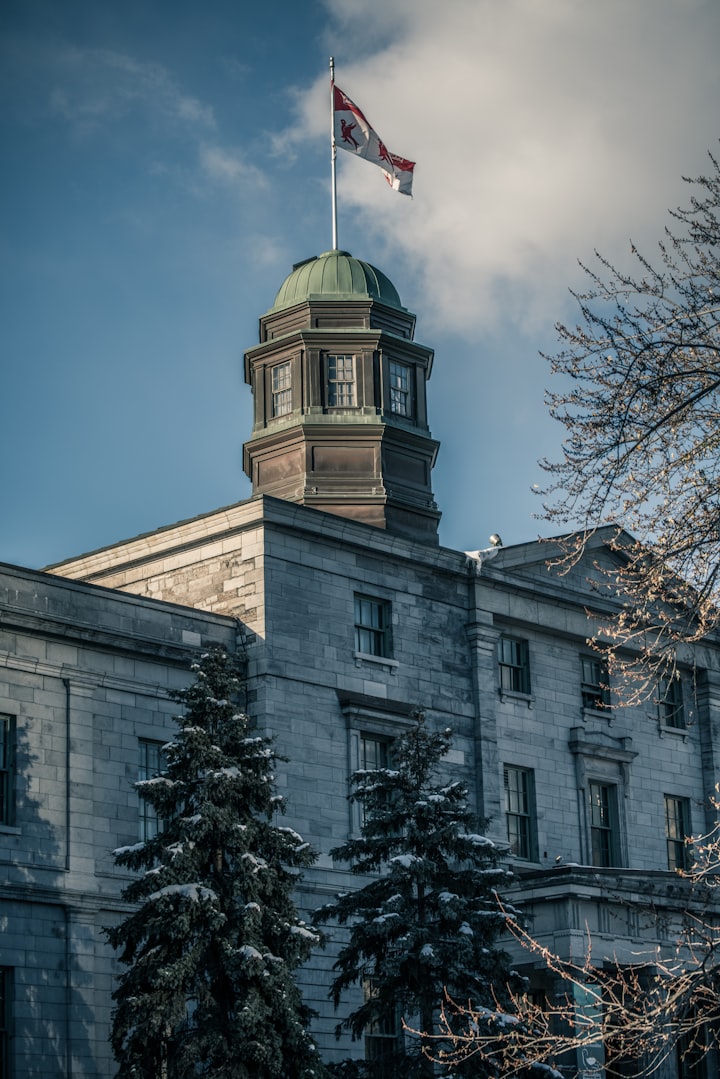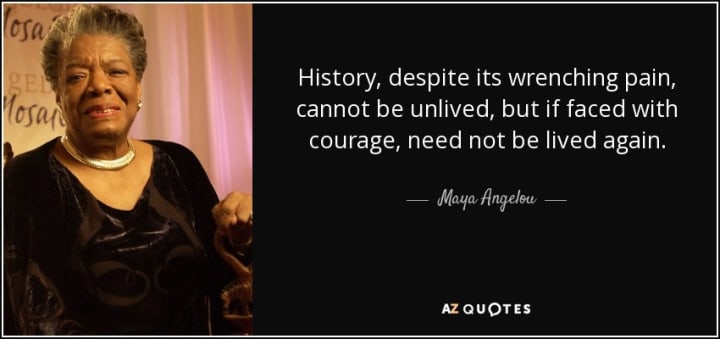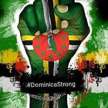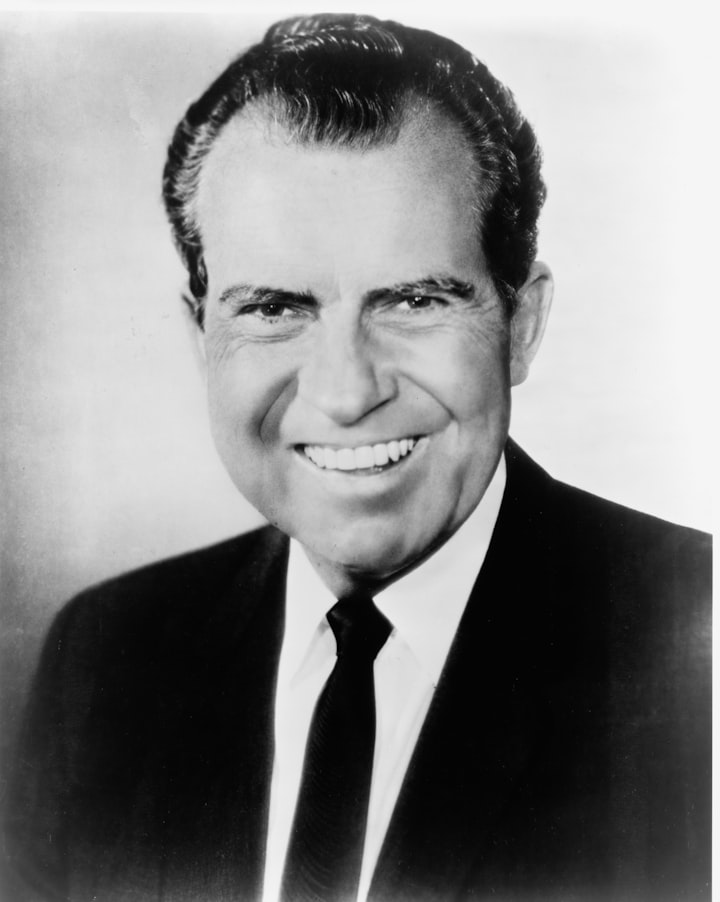McGill and the Great ReThink
What to do with a history...

What's in a name?
For an English major, this can lead to many other questions. I was on the McGill campus looking at some of the book purchases I made at The Word on Rue Milton (this used bookstore was one of the main drops for me and others when we were students). Feeling nostalgic, I walked up to the campus, passed through the Arts Building centred in the campus, and then sat outside in the rare sunlight.
I got lucky. There were tours guiding the curious and bored around the campus. Two of these groups stopped in front of the steps of the building and spoke right in front of me about the history of the school and the details I had never known (eg. the Arts Building was the first one built on campus; James McGill - the successful business and founder of the school - was a slave owner who made his fortune as a profiteer on human bondage; his grave was right on campus - it was in the triangular section right in front of me).
I think I can forgive my ignorance. I was a grad student who never had time for such tours (work off campus and lectures made up most of my days). I wrote for campus papers and invigilated exams for extra money, but I never dug too deeply into the history of the school. But I should have noticed a shift in the mood of the students; a change in how we look at history.
The tour guides gave some general information about the school and its founder. But then, I noticed a change in tone:
He was a slaver who profited from the slave trade.
He became ill after many years of illicit business deals.
And
We find his story quite disturbing.
Not the general language of people hired to describe an institute where their children would possibly earn a degree.
And then, there was The Tribune (the campus newspaper). I found a copy earlier at The Word and noted something a little strange: the McGill name was not longer a part of the title. I went to another bench, opened up the paper, and found the following editorial:
We're changing our name. McGill should, too.
As I mentioned, I wrote for campus papers (specifically the CAPS newsletter and The McGill Daily). I never wrote for this particular paper, but I knew of it. And that was why I was quite surprised to read these paragraphs:
Name changes are one small step, necessary but not sufficient in and of themselves. The Tribune will accompany its name change by continuing to hold ourselves accountable through our own journalism, creating more avenues for community engagement and diverse perspectives, and engaging with more student groups on campus.
There was also these words at the conclusion:
McGill...may be primarily interested in upholding the prestigious veneer of its namesake on an international stage, but as an independent student-led publication, we choose to reject the social capital that associating with McGill and its legacies may yield. If we cannot reject this name, we cannot in good faith stand behind any of the changes we have advocated for.
Such an issue could not be limited to one campus. On CBC Radio One's Cross Country Check-Up, a mix of responses to the issue of renaming the school was heard. This was all coming after attacks against the histories and statues of McDonald, Brock, and a host of other figures from Canadian history with dirty pasts.
So, how do I feel about this sudden shift in perceptions? How would a visible minority like me (black, West Indian) benefit from these actions?
I turn to another school.
Down the hill from McGill, and heading west, you will encounter that other famous Montréal educational institution: Concordia University. Many are not aware that it was once called the Sir George Williams University until 1974. Even less are aware of what is called the Sir George Williams Affair in 1969. Black students were organizing to deal with some of the quite blatant racism they faced on campus - one of those students would eventually become prime minister of the island my parents came from - and the school ignored their problems. And, being the 1960s, they responded with an occupation of the school, destruction of property, and the inevitable behaviour of the authorities. From Wikipedia:
As the building burned, the crowds watching the scene from below chanted, "Let the niggers burn!" and "Burn, niggers, burn!"As the students tried to escape from the burning building, they were arrested, subjected to racist insults and beaten savagely by the police. Once in custody, the 87 students were divided by race, with the 38 black students separated from the White students. The computer lab was destroyed, resulting in over $2 million in damage. The entire incident was recorded live by television crews, and the most memorable image associated with the riot was smoke raising from the Hall Building while the streets were swamped with punch cards.Windows were broken and computer tapes and punch cards tossed onto the street below. The charges against most of the rioters were eventually dismissed. A total of 1,044 charges were brought by the Crown, of which only 50 were heard in court, nine were not held and 22 were dropped. The governor-general of Canada, Roland Michener, was touring the West Indies at the time. He was unable to give a speech at the St. Augustine campus of the University of the West Indies in Port of Spain, the capital of Trinidad and Tobago, as various radical students accused Canada of being a racist country. Public opinion in Canada was overwhelmingly against the students, who were denounced as "rampaging criminals," "thugs" and "anarchists." The man considered the leader of the protest, Kennedy Frederick of Grenada, was denied bail and brought to court in a cage as if he was an animal. The media blamed lax immigration laws that allowed "trouble-making" students from the West Indies to attend Canadian universities.

And why am I mentioning this here? Because it is a piece of history that no one ever shared or discussed with me until I did some digging up and hunting down of the facts. To be fair, there were eventually documentaries and books written on the event, but it took such a long time for this to come about that I did not learn of it until a woman I met at a party casually mentioned her time in Montreal in the late 1960s and how this was such a key event.
Yes, a key event. An event that is a part of the city's history. An event that should be a part of every schoolkid's curriculum and still discussed today. But it is not. And maybe it is because of the name change. Isn't it interesting that the school changed its name just a few years after this event, as if the past was no longer worth discussing in the present; as if the history they could not face did not need to be faced in the future?
This is my worry: if we do try to erase these names and not discuss the ugliest parts of our collective past, we are in danger of never looking back at all. I know that this might seem a strange argument to hear from a 'visible minority' (such a stupid term), but I do not want to live in a culture that ignores why certain problems still exist and why some stories go unheard. Will we have honest discussions not only about why they did what they did, but also why those statues were there and had to go? Will we ignore the parts of the story we do not like to face?
By all means, change all the names you want. Just make sure that we do not ignore the histories that causes them to have a statue in a park, or a plaque on a building. That would be a great crime as well.

Thank you for reading!
If you liked this, you can add your Insights, Comment, leave a Heart, Tip, Pledge, or Subscribe. I will appreciate any support you have shown for my work.
You can find more poems, stories, and articles by Kendall Defoe on my Vocal profile. I complain, argue, provoke and create...just like everybody else.
Give it a look...
About the Creator
Kendall Defoe
Teacher, reader, writer, dreamer... I am a college instructor who cannot stop letting his thoughts end up on the page.
And I did this: Buy Me A Coffee... And I did this:






Comments (4)
I do believe that it's true that a big part of why those of us on the left want those images & names removed is because we want to be able to believe that we're no longer like that. And yet, the legacy remains. As a white, middle-class, heterosexual male living in the United States of America, it would be convenient for me to be able to say that's all in the past. The only thing that would make me more privileged in the world than I currently am would be more money & political/economic/social power. Wouldn't it be nice for me to be allowed to ignore what that privilege has & continues to cost others?
Montreal of the 60s was so ripe with historical moments and yet I didn't know about what happened at Concordia. I'm going to learn more about this and maybe browbeat the CBC for yet another missed opportunity to talk about actual history in their headlong obsession with endless identity politics. Why would they ignore such an important event? (The idiot private press has their, sell whatever is right under the publics' noses excuse, but not the CBC. I find I'm getting more and more fed up with them.) Your article was very well written and powerfully informative Kendall!
I have always loved Maya Angelou. Her quote sums it best. It’s incredibly sad that the same problems happen over and over. Great piece, Kendall. Educate, and evolve. I do have hope for the future. ❤️
Well done